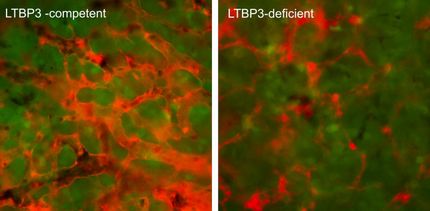Genmab announces interim results in pivotal study of zalutumumab in head and neck cancer
Genmab A/S announced that the interim survival analysis of the Phase III pivotal study investigating zalutumumab (HuMax-EGFr®) in refractory head and neck cancer patients did not fulfill a criterion for early stopping after half the trial has been completed. An Independent Data Monitoring Committee (IDMC) has evaluated the interim results and concluded that the benefit-risk profile of zalutumumab is acceptable. The IDMC recommended that the trial should continue to enroll up to a maximum of 273 patients and a final analysis performed. 212 patients have been randomized and the final analysis will take place once 231 deaths have occurred.
"We are pleased that this study will continue and are optimistic that the full study results will show extended survival in patients with advanced head and neck cancer," said Lisa N. Drakeman, Ph.D., Chief Executive Officer of Genmab.
The pivotal study will include a maximum of 273 patients with squamous cell carcinoma of the head and neck (SCCHN) who are refractory to or intolerant of standard platinum-based chemotherapy. Patients in the study will be randomized into two treatment groups: zalutumumab in combination with best supportive care or best supportive care alone. Patients treated with zalutumumab in combination with best supportive care will receive an initial dose of 8mg/kg of zalutumumab, followed by weekly infusions of a maintenance dose until disease progression. The maintenance dose will be adjusted as necessary until the patient develops a dose limiting skin rash, up to a maximum dose of 16 mg/kg of zalutumumab. Disease status will be assessed every 8 weeks by CT scan or MRI according to RECIST criteria until disease progression and patients will be followed for survival.
The objective of the study is to evaluate the efficacy of zalutumumab in combination with best supportive care as compared to best supportive care alone in terms of overall survival. The primary endpoint in the study is overall survival from randomization until death.
Most read news
Other news from the department research and development

Get the life science industry in your inbox
By submitting this form you agree that LUMITOS AG will send you the newsletter(s) selected above by email. Your data will not be passed on to third parties. Your data will be stored and processed in accordance with our data protection regulations. LUMITOS may contact you by email for the purpose of advertising or market and opinion surveys. You can revoke your consent at any time without giving reasons to LUMITOS AG, Ernst-Augustin-Str. 2, 12489 Berlin, Germany or by e-mail at revoke@lumitos.com with effect for the future. In addition, each email contains a link to unsubscribe from the corresponding newsletter.





















































